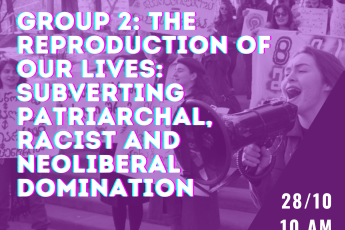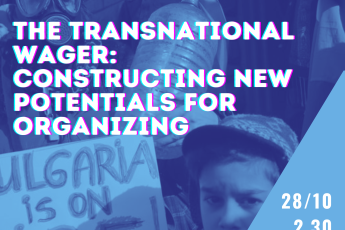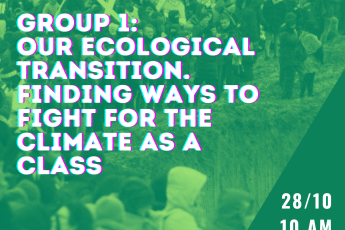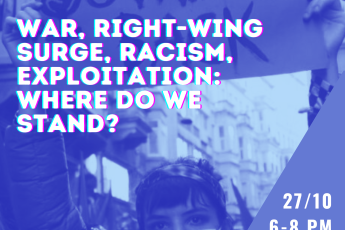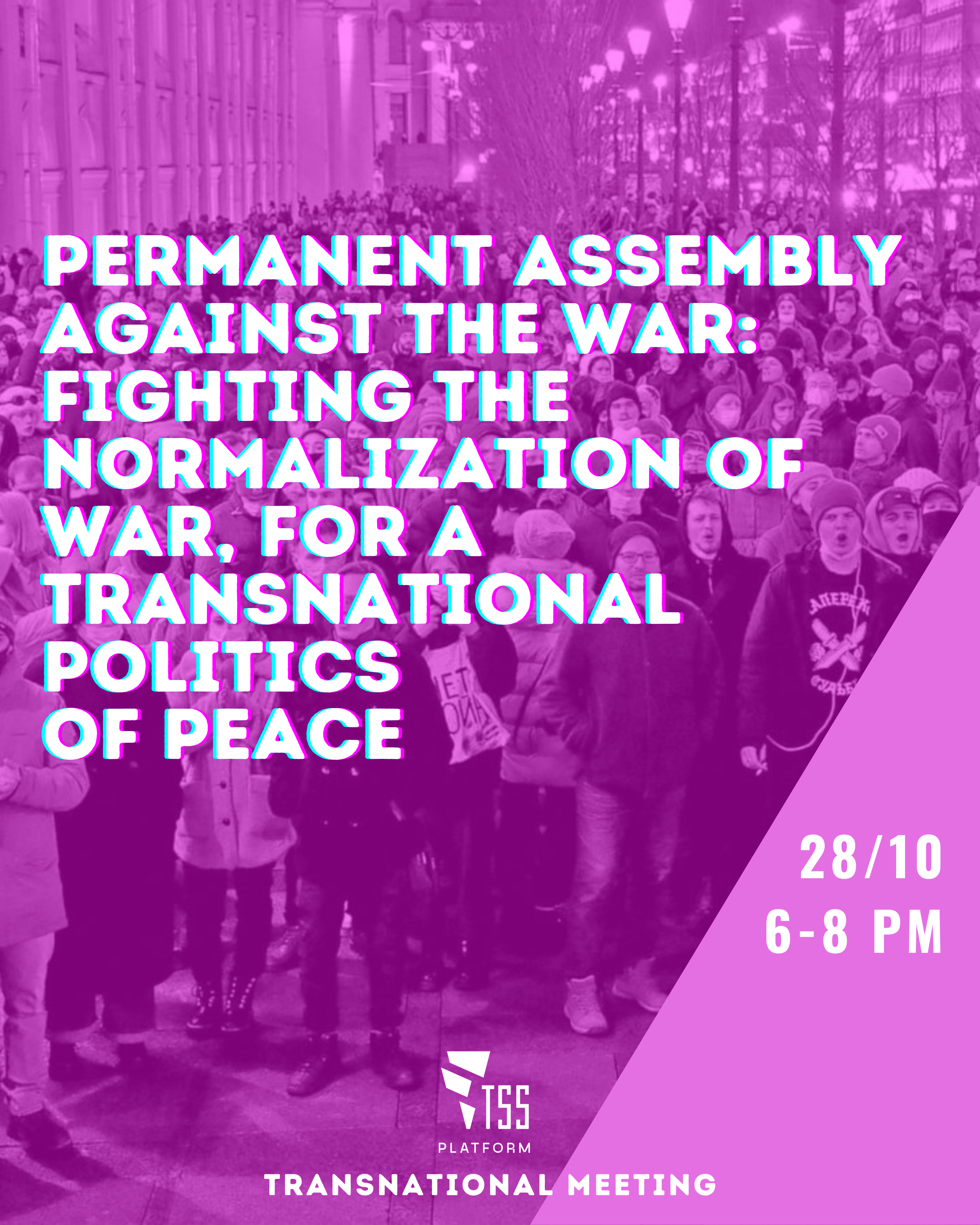
SATURDAY OCTOBER 28th: Plenary 18:00h-20:00h (Porta Pratello)
Opening inputs
Isabella Consolati (Precarious Connections/TSS Platform)
Vadym Yakovlev (Writer and activist, Ukraine)
Issa Amro (Youth Against Settlement, West Bank)
Yeheli Cialic and Sofia Orr (Mesarvot, Israel)
Lee Chun Fung (Independent art curator and activist, HK/China).
Read the introductory notes
After the Russian invasion of Ukraine, the Permanent Assembly Against the War has called to oppose the war in Ukraine and its global effects by taking a stand on the side of women and men, migrants, lgbtq people, and workers who are refusing the war on every front and every day, while paying its price also with their life. This is what we have called a transnational politics of peace, which is increasingly urgent in front of the war in the Middle East. The conflict between Israel and Palestine is not new, and it has a history of apartheid, violence, segregation and exploitation which nobody should deny. What is new is the world disorder exacerbated by the war in Ukraine in which this bloody confrontation explodes. The Western front is ready to exhibit its unity by supporting Israel’s blind violence against people in Gaza. On the other side, millions of Palestinians who strive for freedom are silenced by international and regional dynamics which equate them to terrorists or claim to enroll them into regional hegemonic politics and confessional projects which have nothing to do with that freedom.
This is the war logic invading all spaces. Both when the firmness of the Western front weaves, with more governments questioning their unconditional support to the Ukrainian army, and when that front realigns in support of the oppressive Zionist State, the war is reducing the spaces of struggle and the possibilities of improving our conditions, while the material and ideological grip of the war has paved the way for the rise and consolidation of the right-wing everywhere in Europe and beyond. There is however an opposition to the war, which the war invisibilizes but does not suppress, and continues despite the repression which targets dissenters on both fronts, starting from hundred thousand deserters. In Ukraine and Russia there are women who are organizing the everyday reproduction of life and providing support for women who survived war-rape and are in need of abortion; there are doctors and nurses fighting against cuts in social and health expenditure justified by the war; there are workers on strike for better wages, and against their devaluation caused by the increasing cost of living, who concretely oppose the effects of the war, though they not always name it; there are people fighting against any form of confessional politics, pointing to the possibility of establishing connections that cut through States war politics and national or ethnic confrontations; there are struggles against climate injustice and the war as an excuse to delay the dismissal of fossil fuels or accelerate capitalist green accumulation; there are migrants who move to Europe and practically challenge the racist hierarchies exacerbated by the war.
In Bologna, we want to discuss together how to voice the opposition to the war already present in all these struggles, which are our resources for a transnational politics of peace. We have the chance to highlight the link between exploitative, racist and patriarchal policies and war politics, between social struggles and the opposition to the war, pointing to the possibility of connecting them on the field of a transnational politics of peace. While claiming an immediate end to the massacre of hundred thousand lives, we will ask: how do we avoid being trapped by the impossible alternatives imposed by the war and its multiplication? How to connect the transnational to the local, and make the transnational politics of peace a concrete possibility against the idea that there is no alternative to the war? How can we effectively practice a counter-hegemony?


